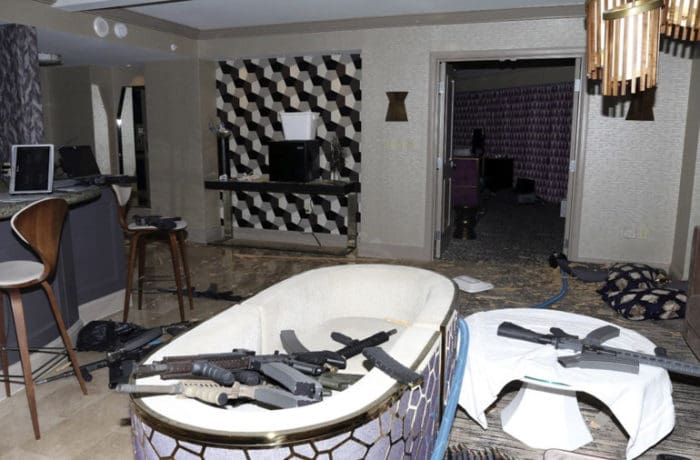Somehow it seems newsworthy when the law, as written, is applied as written and intended. The Nevada Supreme Court has found that a group of gun manufacturers and retailers are not liable in the Las Vegas shooting that took place at a music festival in October of 2017.
As Courthouse News reports, the Court ruled that . . .
…that state law grants immunity to gun makers and sellers from lawsuits pertaining to the 2017 mass shooting at a Las Vegas concert.
The court ruled the text of the law and the legislative history shield the gun companies from most liability, even if the guns at issue are proven to be illegal. The justices said the law could be changed by the Legislature but could not be altered by the judiciary.
The wrongful death suit had been brought by the parents of a woman who had been killed at the Route 91 Harvest Festival. They had sued Colt, FN, Daniel Defense, Patriot Ordnance, Noveske, Christensen, LMT, LWRC, and a group of retailers.
“We urge the Legislature to act if it did not mean to provide immunity in situations like this one,” Justice Kristina Pickering wrote for the unanimous court. “But as written, [the law] declares a legislative policy that the Parsonses cannot proceed with these claims under Nevada law.”
The federal judge overseeing the case concluded the Parsons’ complaint sufficiently alleged that the gun companies were aware that their semiautomatic rifles could be “easily modified with bump stocks” to shoot automatically, similar to a machine gun, which Paddock had done. The judge did not definitively rule that the guns were in fact in violation of federal and state machine gun laws, only that the claims met a preliminary standard of review.
Having determined that the wrongful death and negligence claims against the gun companies had enough factual support, U.S. District Judge Andrew Gordon asked the Nevada Supreme Court to determine if a state statute granting immunity to gun makers and sellers applied in the case and therefore barred the Parsons’ state law claims.
Nevada’s law is perhaps even more broad than the federal Protection of Legal Commerce in Arms Act,
The statute reads, “No person has a cause of action against the manufacturer or distributor of any firearm or ammunition.” [Justice Kristina] Pickering said the term “any firearm” dictated that the gun companies are shielded, even if the AR-15s are found to be illegal under the machine gun regulations.
“[The law] does not require that the firearm manufactured or sold be legal for a gun company to seek shelter from civil liability under it,” Pickering said. …
Pickering found the legislative history showed state lawmakers never intended to hold gun makers and sellers liable for conduct using illegal guns, even after they and Congress stringently regulated machine guns throughout the 1960s and 1980s.
You can read the court’s ruling here.
